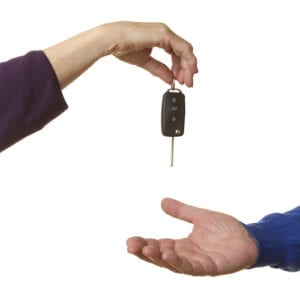
We have all been there. A friend, relative, or neighbour has politely asked us if they can “quickly borrow your car.” Refusing seems unjust if you don’t need it right at that moment but at the same time, you are unsure of the potential ways that this decision could impact your own insurance costs or driving record.
The easiest way to resolve any confusion that you may have in this situation is to remember that if you hand over the keys to your vehicle, you are also handing over your insurance since auto insurance is not tied to the person but rather to the vehicle. If infractions occur while someone else is driving your car, then it is you who could be held responsible. However, this does not apply for traffic or criminal offence charges such as speeding or dangerous driving. In these cases the person who is driving the vehicle at the time is held accountable.
Breaking it Down
The owner of the vehicle is held liable for:
1) Costs due to impoundment and towing of the vehicle as well as being required to put in their own time in order to recover the vehicle.
2) Parking ticket payments.
3) Making sure that the car has valid insurance that is in good standing.
4) Making sure that the borrower has a valid driver’s license and is legally allowed to drive – if they are not legally allowed to drive and get into a car accident, the insurance policy that is associated with the car could possibly become void. This would leave the registered owner of the vehicle responsible for any injuries and/or damages that were caused.
5) Raised insurance premiums if there is an accident that the car is involved in.
The person driving the loaned car is responsible for:
1) Minor traffic tickets, offences and/or charges that occurred while the vehicle was under their control– these offences are tied to a driver’s record and not a vehicle.
2) Making sure that the car has valid insurance that is in good standing. If the car is not insured, you could be charged with operating a motor vehicle without insurance.
Think twice before you hand over your keys
As we can see, responsibility lands heavily on the registered owner of the vehicle in the case of lending/borrowing a car. Before handing over your keys, remember that the decision could have serious financial ramifications for you as the owner and not to mention a potential stain on your insurance records. This is the most important thing to remember when you lend your car. Handing over your keys to anyone else means that you are also handing over your insurance. Someone else’s actions behind the wheel of your car have the potential to cost you both in insurance prices and possibly even your clean driving record.
Though it is both the lender and the borrower that should assume a shared general responsibility that the car loan transaction is lawful and safe, it is clear that the lender has a lot more on the line. Keep these things in mind the next time you are borrowing someone else’s vehicle and also if you are considering lending your vehicle to someone else.
 Jason Baxter
Jason Baxter